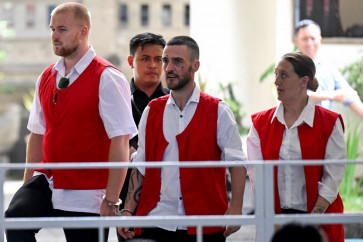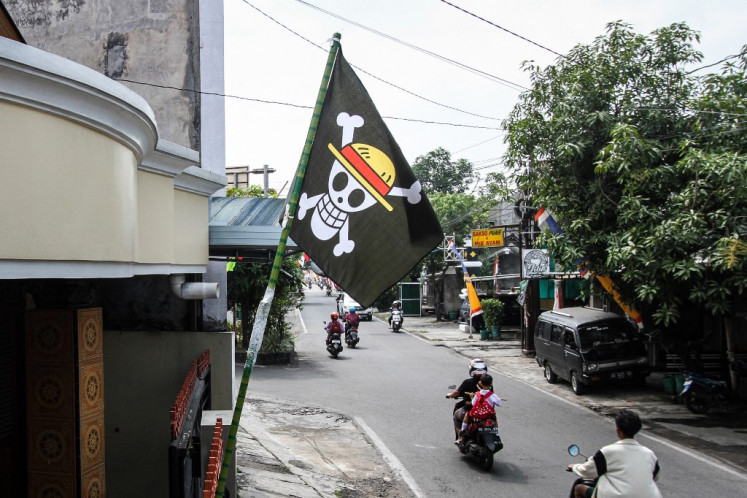Popular Reads
Top Results
Can't find what you're looking for?
View all search resultsPopular Reads
Top Results
Can't find what you're looking for?
View all search resultsFTAs need to address security, legal issues
Any trade agreements, whether bilateral or multilateral, should specifically address the issues of security and improve legal frameworks to cope with the growing threat of transnational crimes and ensure all parties benefit from the arrangements, experts say
Change text size
Gift Premium Articles
to Anyone
A
ny trade agreements, whether bilateral or multilateral, should specifically address the issues of security and improve legal frameworks to cope with the growing threat of transnational crimes and ensure all parties benefit from the arrangements, experts say.
Kusnanto Anggoro, a political and military expert from the University of Indonesia, said that free trade agreements (FTA) involving countries with shared borders had not directly increased the number of transnational crime cases.
However, FTAs were “opening up opportunities for transnational crimes to occur”, as they eased the flow of goods and services, he added.
“FTAs could be the strengthening factor. However, there are other intervening factors, which are not included in the agreements,” Kusnanto said at a workshop on trade and globalization here on Friday.
He said that other factors included government corruption and security professionalism in border areas. In the seven FTAs that Indonesia has signed so far, he said, those factors were not addressed.
“For example, there is no provision for capacity building programs in state apparatuses. Such programs are usually included in non-trade agreements,” he said.
Kusnanto cited the Security and Prosperity Partnership of North America (SPP) enacted by Canada, the US and Mexico in 2005. The countries intended the SPP to complement the North American Free Trade Agreement (NAFTA).
“It would become another thing if the arrangement was not as good. Here, in the ASEAN FTA for example, we don’t even have the idea,” he said.
Meanwhile, Sunaryati Hartono, a legal expert who served as ombudsman, said that a comprehensive legal framework played a big role in keeping countries satisfied by free trade agreements.
“The role of transnational corporations has become more dominant nowadays. It is about what kind of law we introduce to control the country,” Sunaryati said at the same workshop.
She said that Indonesia’s legal system had to adapt quickly to rapid development in the world. If possible, she said, Indonesia should undertake legal reform to complement the continental law it practiced, a legacy of Dutch colonization.
Sunaryati said most concepts of international trade were in accordance with the common law.
“I have carried out several research studies. I found out that it seems most of the countries that were successful have taken up elements of common law in their national law,” she said.
John Kirton, a globalization expert from the University of Toronto, said that Canada practiced both common and continental law as a result of British and French influences on its history.
“Canada is very fortunate to have two legal systems. We are able to understand and deal with countries around the world which practice either two systems,” he said.
However, he said, addressing national interests would still determine a nation’s ability to cope with world development. (rcf)










